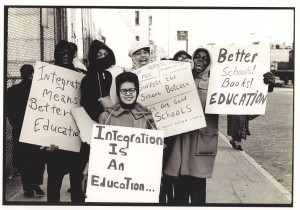The Network for Public Education – a nationwide coalition of groups fighting to defend public schools – issued a statement today in light of the U.S. Supreme Court’s ruling allowing public funds to be used for private, religious schools.
Here is that statement in full:
The ruling of the U.S. Supreme Court in Carson v. Makin forces taxpayers to fund religious education in states with school choice programs, a radical departure from American values and traditions. With this decision, the Court eradicated the separation between church and state when it comes to public funding for education, opening the door to future decisions that would further mandate the public funding of religious education. Prior to the ruling, states could fund religious education but were not obliged to do so. As Justice Breyer noted in his dissent, “What happens once “may” becomes “must”? Does that transformation mean that a school district that pays for public schools must pay equivalent funds to parents who wish to send their children to religious schools?”
The implications of the Court’s wrong-headed decision are enormous and will certainly be seized upon by radical school privatization advocates. Privatizers have focused on capturing state legislatures and securing judicial appointments to ensure their small minority can bend public policy against high-quality and popular public schools, and today’s ruling further undermines the ability of Americans to protect public education funding.
Students, families, and taxpayers have regularly been saved from problematic, unaccountable, and fraudulent voucher programs through lawsuits citing state constitutional provisions that prohibit direct government aid to educational institutions affiliated with religious organizations. The U.S. Supreme Court has demolished those protections and this will lead to additional voucher programs that will siphon taxpayer dollars from public schools.
Although this case focused on a voucher program, the ruling also opens the door to allow religious institutions to overtly run charter schools, which also have their own long history of fraud, low-quality staff, poor academic performance, and general mismanagement. Given that charters are run by private boards, similar to the boards that run private schools, this precedent paves the way for later decisions for religious charters.
Perhaps most disturbing, some religious schools have a long history of engaging in reprehensible discrimination in both admissions and hiring and in many cases failing to provide adequate and science-based academic instruction. This decision will embolden the creation of more schools, that receive taxpayer funding, to engage in discriminatory practices in the name of religion.
Commenting on the decision, NPE President, Diane Ravitch, stated, “Maine and Vermont should only include the option of public schools in their town tuitioning programs, thus limiting public funding to public schools. Other states that subsidize any private schools should stop doing so. The path on which SCOTUS has embarked will end in publicly funded schools for every religion, of which there are scores. It threatens the principle of the common school, supported by the public and open to all children.”
Carson v. Makin highlights the depth of the current assault on our public schools by a highly motivated and organized radical minority. Even with today’s devastating ruling, their assault will continue to push for even more until all public schools are closed, and every student is left behind.
We will continue our advocacy efforts on behalf of democratically governed public schools opened to all. Public funds are for public schools.
This case has clear implications for Tennessee and Gov. Bill Lee’s plans to privatize public schools:

For more on education politics and policy in Tennessee, follow @TNEdReport
Your support – $5 or more – makes publishing education news possible.
